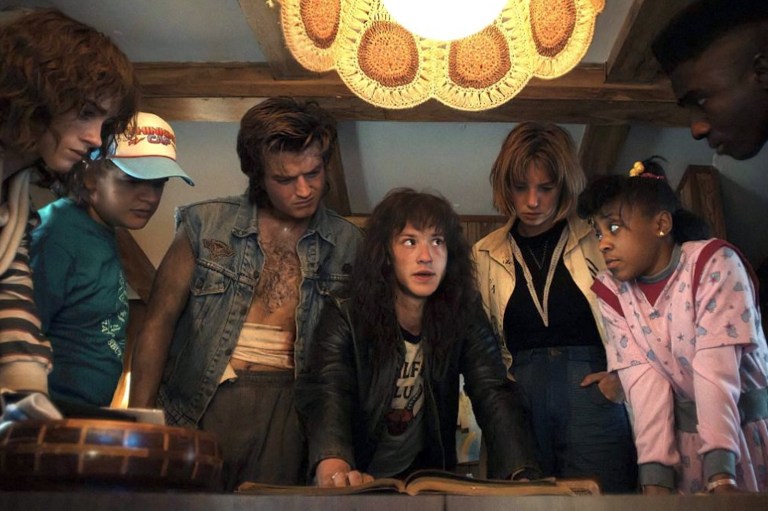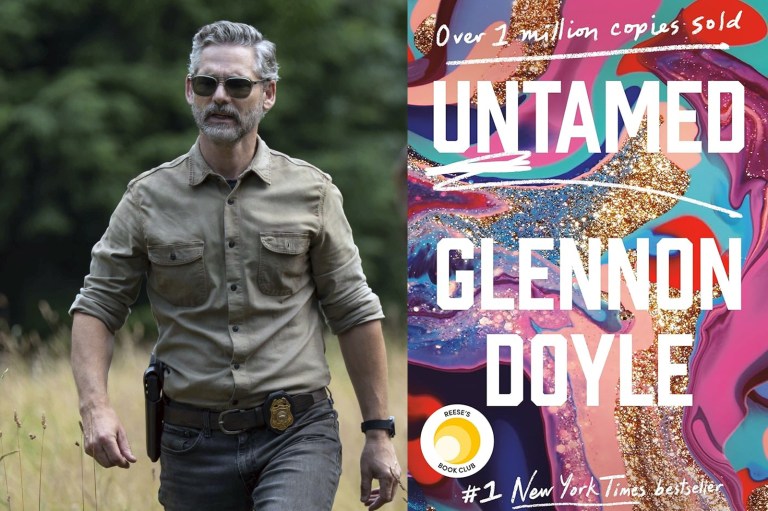
12 Questions That Will Change Your Life
The right question at the right time can change the course of a life, can still a turbulent mind, or heal an angry heart.
By ![]() Ryan Holiday
Ryan Holiday
The instinct is to look for answers, but the truth is that questions that teach us most. It can also be that the rhetorical questions—the ones that don’t even seem to have answers—that push and push the hardest. Who do you think you are? What does all this mean? Why? Why? Why?
The right question at the right time can change the course of a life, can still a turbulent mind, or heal an angry heart. While every situation can generate its own, there are twelve questions, I think, that deserve to be asked not just once but many times over the course of a lifetime, some even many times over the course of the day. I have gathered them from some of the wisest philosophers, most incisive thinkers, greatest leaders and most awesome badasses that ever lived. I’m not saying I know the answer to any of them, but I can say there is value in letting them challenge you. If you let them. If you let them do their work on you—and let them change you.
Start now by asking:
Who Do You Spend Time With? Goethe would say “Tell me who you spend time with and I will tell you who you are.” Who we know and what we do that influences more than any other factor, who we will become. Because what you do puts you around people, and the people you’re around affects what you do. Think about your friends and colleagues: do they inspire you, validate you, or drag you down? We seem to understand that a young kid who spends time with kids who don’t want to go anywhere in life, probably isn’t going to go anywhere in life. What we understand less is that an adult who spends time with other adults who tolerate crappy jobs, or unhappy lifestyles is going to find themselves making similar choices. Same goes for what you read, what you watch, what you think about. Your life comes to resemble its environment (Ben Hardy calls this the proximity effect). So choose your surroundings wisely.
Is This In My Control? Epictetus says that the chief task of the philosopher is to make the distinction between what is in their control and what is not—what is up to us and what is not up to us? We waste incredible amounts of time on the latter and leave so many opportunities on the table by mislabeling the former. Our actions, our thoughts, our feelings, these are up to us. Other people, the weather, external events, these are not. But here’s where it comes full circle: our responses to other people, the weather, external events are in our control. Making this distinction will make you happier, make you stronger and make you more successful if only because it concentrates your resources in the places where they matter.
What Does Your Ideal Day Look Like? If you don’t know what your ideal day looks like, how are you ever going to make decisions or plans for ensuring that you actually get to experience them on a regular basis? It’s important to take an inventory of the most enjoyable and satisfying days of your life. What did you do? Why did you like them? Now be sure that your job, personal life, even the place you’ve chosen to live takes you towards these, not away from them. If you don’t want an office, don’t set up an office. I run my company remotely. If you enjoy being in harness and that’s what makes you feel good, then you’ll probably need something that has a lot of responsibilities and set requirements. If you enjoy influence more than material success, then make sure you pick something that allows for that. If you’re a quiet person, then you need a lifestyle that will let you be quiet—not one that forces you to be constantly not yourself. If you thrive on attention and collaboration, then pick accordingly. If you want to live in the same place for a long time, maybe buy a house. If you don’t—God, please don’t. And on and on and on.
To Be Or To Do? One of the best strategists of the last century, John Boyd, would ask the promising young acolytes under him: “To be or to do? Which way will you go?” That is, will you choose to fall in love with the image of how success looks like or you focus on a higher purpose? Will you pick obsessing over your title, number of fans, size of paycheck or on real, tangible accomplishment? He said that in life there is a roll call and it sorts people by their answer to this question, the doers and those who simply pretend. Which will you be? Which have you been?
If I Am Not For Me, Who Is? If I Am Only For Me, Who Am I? The alternative translation of that last part is “If I am only only for me, what am I?” The answer is “the worst.” The question comes from Hillel the Elder (also happens to be a favorite quote of Reid Hoffman, the venture capitalist). It doesn’t make you a bad person to want to be remembered. To want to make it to the top. To provide for yourself and your family. But if this is all you want it is a problem. There is a balance. Think of someone like General George Marshall, winner of the Nobel Peace Prize for the Marshall Plan, who had the same traits that everyone has— ego, self-interest, pride, dignity, ambition—but they were “tempered by a sense of humility and selflessness.” When he was practically offered the command of the troops on D-Day he told President Roosevelt: “The decision is yours, Mr. President; my wishes have nothing to do with the matter.” It came to be that Eisenhower led the invasion and performed with excellence, Marshall’s opportunity to change history came soon after—winning the peace prize and saving Europe as Secretary of State.
What Am I Missing By Choosing To Worry or Be Afraid? As Gavin de Becker writes in The Gift of Fear, “When you worry, ask yourself, ‘What am I choosing to not see right now?’ What important things are you missing because you chose worry over introspection, alertness or wisdom?” Another way of putting it: Does getting upset provide you with more options? Obstacles in life make us emotional, but the only way we’ll survive or overcome them is by keeping those distracting emotions in check—if we can keep steady no matter what happens, no matter how much external events may fluctuate. The Greeks had a word for this: apatheia. It’s the kind of calm equanimity that comes with the absence of irrational or extreme emotions. And so when you find yourself indulging in those emotions, one way to get yourself back on track is simply by reminding yourself of the cost they incur: That you’re missing something by being nervous, scared, or anxious. That you’re taking your eye off the ball to do it. Can you afford that? Probably not.
Am I Doing My Job? The three-word command from Bill Belichick, Nick Saban, Sean Payton, Jason Garrett: Do Your Job. The last thing the great John Wooden would say to his players in the locker room before a game was, “Well, I’ve done my job.” So the question is: Are you doing yours? Do you even know what that job is? It’s important to remember that we can be very busy—exhaustingly busy—and still not be doing our job. We can be caught up in the things that don’t matter, we can be interfering and encroaching on someone else’s job, we can be just plain procrastinating. All these things keep us working—but not on the job that actually matters.
What Is The Most Important Thing? If you don’t know what the most important thing is to you, how do you know if you’re putting it first? How do you know if you’re taking the right steps to get it. Maybe the most important thing to you is family. Awesome, so that’s your priority. What it means is that not only do you have to start measuring yourself by family-related metrics, but you have to stop comparing yourself to people with different priorities. Maybe money is the most important thing to you. That’s perfectly fine. Know that and own it—as Michael Lewis writes, the problem is the lying to yourself. You have to know and own whatever it is. Only then can you understand what matters and what doesn’t. Only then can you say no—can you opt out of stupid races that don’t matter, or exist. Only then is it easy to ignore “successful” people, because most of the time they aren’t—at least relative to you, and often even to themselves. Only then you can develop the quiet confidence that Seneca called euthymia—“the belief that you’re on the right path and not led astray by the many tracks which cross yours of people who are hopelessly lost.”
Who Is This For? If you’re making something, selling something, trying to reach people you have to be able to answer this question. It is shocking how many entrepreneurs, writers, salesman, even politicians never bother to stop and go: Who the hell is my audience here? The result is that the message is out of tune or the wrong group is targeted (and failure usually follows). Every creative must stop and really think about who their audience is. What do these people want? What do they need? What value am I offering them? Don’t try to get lucky. Don’t follow your hunch. Get it right. Ask the question, make sure the answer is clear.
Does This Actually Matter? The reason that wise people never let the very real fact of their mortality slip too far from their mind (memento mori) is because it helps them ask this question: Given the shortness of life, does this thing I’m thinking about, worrying about, fighting about, throwing myself into even fucking matter? Sadly, the answer is usually no. We want to ask ourselves this question before we throw good time after bad, before we waste more life than we have to. “You could leave life right now,” Marcus Aurelius reminded himself, “Let that determine what you do and say and think.” In light of that, does this thing you’re so worked up about actually matter? As Stephen Colbert, a man who has experienced unimaginable tragedy has recounted, “Momentary disappointments can be seen,’ as my mother used to say when we had a heart-breaker, ‘in the light of eternity. This moment is nothing in the light of eternity,’ and that opens you up to the next moment if you don’t put too much weight on the moment where you are failing right now.”
Will This Be Alive Time or Dead Time? Early on in my career I had a pivotal conversation with author Robert Greene. I was working full-time at a really good job but planning my next move, saving my money and thinking about what I might do next. I told him I wanted to write a book one day, but I wasn’t sure what, how or when or what about. He told me, Ryan, there are two types of time: Dead time—where we are just waiting and Alive time—where we are learning and active and leveraging. And then he left it there with me to decide which I would choose. Alive time or Dead Time? So let that question catch you the next time you find yourself sitting on your hands or goofing off as you wait. Let it jolt you back into line. Pick up a book, pick up a pen and get back to work. Resist the temptation to get distracted with silly politics or wanderlust. Make the most of every moment as you prepare for the next move or the next event. If you want to be productive, be fully alive.
Is This Who I Want To Be? Our mind has the cunning ability to make the distinction between what we do and who we are. The problem is that this is complete nonsense. You can’t be a good person if your actions are consistently bad. You can’t be a hardworking person if you take every shortcut you can. It doesn’t matter that you say you love someone, it only matters if you show that you love them. Remember Cheryl Strayed’s line: “In your twenties you’re in the process of becoming who you are, so you might as well not be an asshole.” This is true for life itself. You are what you do—so ask yourself whenever you’re doing something: Is this reflective of the person I want to be? That I see myself to be? How we do anything is how we do everything. It is who we are. So ask this question about every action, thought and word. Because it adds up in a way that no amount of self-image or belief ever will.
**
Last question. Sort of. It comes from the great Viktor Frankl, the psychotherapist who survived the Auschwitz and wrote many beautiful books. He tried, as best he could, to try to address that perennial question that every philosopher and hungry young person has struggled with: What is the meaning of life? Frankl struggled with this question too, surely the horrors of a concentration camp and the loss of one’s entire existence will do that to you. But he found that the answer was simple, though there was a problem how the question was posed. You see, he said, it is not us who get to demand of the world, “What is the meaning of life?” Rather, he said, life is demanding that we answer the question with the actions and decisions we make. That we create meaning in our choices and our beliefs. I think we create it in doing our best to challenge ourselves with the questions above:
What am I for?
What is my job?
Who do I want to be?
What’s up to me?
What does a good day look like?
Some are simpler than others, sure, but the answers rarely are—and the act of asking is the most important thing. ![]()











